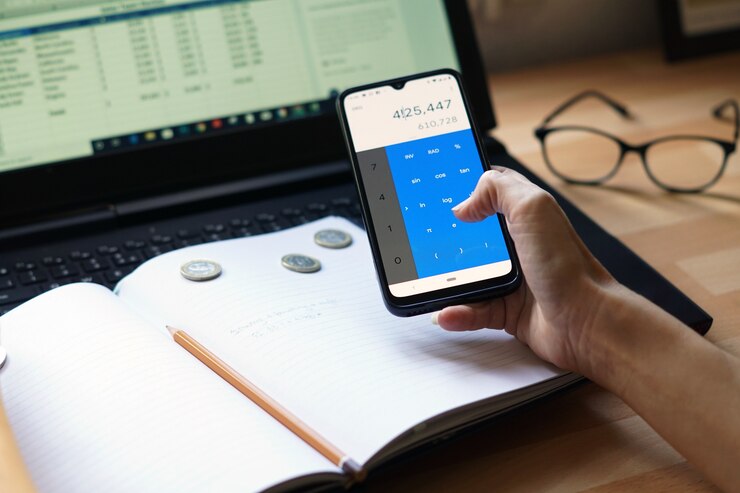Today there is a bewildering array of real estate applications in which purchasing, selling or renting of property has undergone drastic change in the recent past years. Given that consumers are slowly shifting to be more of a technological society, the need to have real estate app development for firms has been deemed very crucial.
With the premier role in real estate, having a mobile app improves the user experience of both renters and property owners as well as simplifies properties’ transactions and real-time data access regardless of one’s years of experience as a realtor or property management firm.
When you thinking about collaboration with a real estate app development company it is crucial to know what features the best real estate apps possess.
Within the scope of this article, we will discuss the major elements to consider when developing a real estate application and useful features which can improve application usage, overall user experience and usability.
If you are a new entrant to the real estate industry or an existing player, the above-mentioned features will go a long way in changing the face of your business and remain relevant in the market.
Must-Have Features For Real Estate App
A real estate app should offer essential features to enhance user experience and streamline property transactions. Below is the list of features that you should incorporate into your real estate application.
1. User Registration and Profile Management
The first target in the development of the real estate app is to provide users with a simple and intuitive registration process. Let the users create an account through their email addresses, social media accounts, or phone numbers.
When the user is registered, he/she has to control and customize the account where the information about the person, his/her choice, and the search history is stored.
This feature ensures personalized recommendations and notifications about new properties, making the experience more user-centric. Many mobile app development services prioritize streamlined registration processes to improve conversion rates and retain users.
2. Advanced Property Search and Filtering Options
Search functionality can be considered as one of the key real estate app features. They should capture the opportunity to access opportunities to search for properties depending on factors such as; geographical region, cost, residential/commercial, no. of rooms or any other preferences they may have.
To build on this, some additional features could be incorporated to include; special search preferences such as near schools, hospitals, or public means of transport and/ or properties that allow pets.
At the same time, such detailed search results will eliminate the loud sound and attract customers to the property that could potentially be interested in the particular area and type of property used for searching, thus increasing general satisfaction.
According to a recent report by the National Association of Realtors (NAR), 97% of homebuyers use the Internet to search for properties, highlighting the importance of an intuitive search feature in real estate apps.
3. Interactive Map Integration
Geo-location is another necessary addition to the applications that should combine interactive maps directly into the application’s interface. Of course, something like Google Maps can reveal available properties in certain areas or zones, thus making it easier to see, where the property is located.
It can also be used to clarify such data as the availability of restaurants, parks and schools which may be important when choosing the property.
That is why maps can be useful for real estate app development companies as it allows to provide users with a convenient tool which would allow them to get a better understanding of the location and surroundings of the property.
4. Virtual Tours and High-Quality Images
Most of the difficulties are specific to the remote evaluation of the properties for buyers and renters. Virtual tour enables users to visit a property without physically visiting the place by physically moving from one home to another.
With this view, one can have a roundabout view of the property, hence being in a better position to judge the state and structure of the property.
However, the high-quality pictures and videos of the property become very important especially when virtual tours are employed. Indeed, the design of the gallery has a great impact on the decision-making of a user through attraction.
Thus, when using the services of a real estate app development company, make sure that the app features high-quality multimedia to build a rather engaging and informative application.
54% of buyers say they would prefer a real estate app with a virtual tour option, according to a report from Zillow.
5. Push Notifications for Real-Time Updates
Using Push notifications is one of the best methods of user engagement for a real estate application. Real-time updates such as a new listing that is of interest or a price drop and open house announcements help the users stay updated and encourage them to act.
Make sure to allow users to customize their notification preferences so that they only receive relevant updates. By incorporating this feature, real estate apps can drive user engagement, leading to higher app usage and conversion rates.
6. In-app chat and Direct Communication
One of the most important services is the possibility to communicate with agents/property managers directly in the app. One of the benefits of in-app messaging is that the users can ask questions, set appointments for properties, or make bargains within the application.
This closed-loop communication helps to build trust and enhance the satisfaction level of the customers. This feature can be incorporated by a good real estate app development company so that there can be constant communication between the buyers, sellers and agents.
7. Mortgage Calculator
When the users are searching for the properties it will span over a certain amount of time and they will tend to look at several listings. Purchasing allows them to save the searches and favorite listings enhancing the experience for the users.
This feature is very helpful in that regard since one can easily go back to properties they had earlier developed an interest in, without going through the whole process of the search again.
8. Saved Searches and Favorites
Saved searches make the application capable of sending specific alerts of changes on the properties that have been favourited by users, for instance, the change of prices or availability. Real estate apps can greatly benefit from this kind of user-centric design since it helps in changing user behaviour and having multiple visits.
9. Property Comparisons
With property comparison helpful to users to make informed decisions, having one is fundamental. One of the functions of the web application is the ability to compare more than one property at a glance based on things like price, location, size of the property or the amenities offered.
Giving users an uncluttered view of different properties also makes it easy for the users to evaluate properties that they are comparing and arrive at a decision that is best suited for them.
Other companies specializing in real estate app development must make sure that this comparison tool will be very friendly and eye-pleasing to the viewers.
10. Agent and Broker Profiles
On many occasions, the buyers and the sellers depend on the real estate agents or brokers for help. One of the ways to help the visitors and customers of the app to get the right person to assist them is by availing detailed agent information.
Such profiles should contain the contact details, the particular areas of expertise, the overall and individual transaction histories and other reviews.
Agent profiles can help users build more trust in these applications especially when the user is generally inexperienced or new to the particular geographical area of interest. Mobile app development services can build up this feature by applying the user review and rating.
A Realtor profile is of paramount importance, as the survey of the National Association of Realtors shows that 88% of buyers built their home via an agent in 2023.
11. Secure Payment Gateways
For property rentals or deposits, integrating secure payment gateways is essential. Users should be able to make secure transactions through the app, whether it’s paying a deposit, renting, or booking a property.
Security is crucial when handling sensitive financial data. Collaborating with a real estate app development company that prioritizes security protocols, such as encryption and authentication, ensures a safe and reliable experience for users.
12. Analytics and Reports for Agents
While the app caters primarily to buyers and renters, it’s equally important to provide value to real estate agents. Offering analytics and reporting tools can help agents track their listings, view customer interactions, and gauge the performance of their properties in the market.
This feature offers agents insights into user behaviour, helping them tailor their listings and marketing strategies more effectively. Partnering with a mobile app development services provider that can integrate such tools will improve the overall app experience for all users.
Conclusion
Real estate apps are transforming how people buy, sell, and rent properties. Whether you are an aspiring entrepreneur or an established real estate firm, incorporating these must-have features will ensure that your app remains competitive and user-friendly.
Features such as advanced property search, virtual tours, in-app communication, and secure payment gateways are essential to delivering a seamless experience.
As more consumers turn to technology to fulfil their real estate needs, collaborating with a trusted real estate app development company ensures that your app is equipped with the latest tools and technologies. By focusing on these features, you can build an app that stands out in the competitive landscape, enhances customer satisfaction, and ultimately drives sales and engagement.















